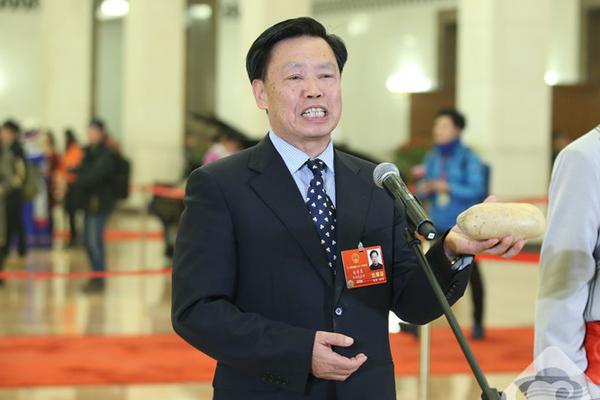
1. The five functions of the operating system are processor management, memory management, device management, file management and job management. Processor management The most basic function of processor management is to process interrupt events. After configuring the operating system, various events can be processed.
2. The main function of the computer operating system is process management, and its work is mainly process scheduling. In the case of a single user and a single taskNext, the processor is only monopolized by one user's task, and the process management work is very simple.
3. Operating System (abbreviation: OS) is a group of interrelated system software programs that supervise and control computer operation, use and run hardware, software resources and provide public services to organize user interaction.
4. Five major management functions of the operating system: (1) Job management: including tasks, interface management, human-computer interaction, graphical interface, voice control and virtual reality, etc. ( 2) File management: also known as information management. ( 3) Storage management: The essence is the management of storage "space", which mainly refers to the management of the main memory.
Any information system has five basic functions, namely: information collection and recording (input); information storage; information processing; information transmission; information output .
According to the functional introduction of the information system, the information system has five basic functions: input, storage, processing, output and control. Different functions have different functions, such as input function: the input function of the information system is determined by the purpose to be achieved by the system, the ability of the system and the permission of the information environment.
Five basic functions of the information system: input, storage, processing, output and control. Input function: The input function of the information system is determined by the purpose to be achieved by the system, the ability of the system and the permission of the information environment.Storage function: Storage function refers to the ability of the system to store various information and data. Mainly including: statistical functions.
The operating system has five functions: processor management: mainly controls and manages the work of the CPU. Storage management: mainly allocate and manage memory. Device management: mainly manage basic input and output devices. File management: responsible for the organization, storage, operation and protection of computer files.
The functions of the computer operating system include: processor management, memory management, device management, file management, job management and other functional modules. Processor management. The most basic function of processor management is to handle interrupt events. The processor can only detect interrupt events and generate interrupts and cannot process them.
The main function of the computer operating system is process management, and its main work is process scheduling. In the case of a single user and a single task, the processor is only monopolized by one user's task, and the work of process management is very simple.
The main functions of the operating system are process and processor management, job management, storage management, device management and file management, as follows: process and processor management. Because the execution of the program must rely on the processor, only one program flow can be processed and executed at any time. Homework management.
I) Processor management The most basic function of processor management is to handle interrupt events. The processor can only detect interrupt events and generate interrupts, and cannot handle these interrupt events. After configuring the operating system, all types of events can be handled.Another function of processor management is processor scheduling.
Five management functions of the operating system: job management: including tasks, interface management, human-computer interaction, graphical interface, voice control and virtual reality, etc. File management: also known as information management. Storage management: The essence is the management of storage "space", which mainly refers to the management of the main memory.

The storage management function of the operating system is to manage memory resources. It mainly realizes memory allocation and recovery, storage protection and memory expansion. The device management of the device management operating system is responsible for allocating and recycling external devices, and controlling external devices to operate according to the requirements of user programs.
The functions of the computer operating system include: processor management, memory management, device management, file management, job management and other functional modules. Processor management. The most basic function of processor management is to handle interrupt events. The processor can only detect interrupt events and generate interrupts and cannot process them.
The five functions of the operating system are processor management, memory management, device management, file management and job management.Processor management The most basic function of processor management is to process interrupt events. After configuring the operating system, various events can be processed.
Hearthstone deck-APP, download it now, new users will receive a novice gift pack.
1. The five functions of the operating system are processor management, memory management, device management, file management and job management. Processor management The most basic function of processor management is to process interrupt events. After configuring the operating system, various events can be processed.
2. The main function of the computer operating system is process management, and its work is mainly process scheduling. In the case of a single user and a single taskNext, the processor is only monopolized by one user's task, and the process management work is very simple.
3. Operating System (abbreviation: OS) is a group of interrelated system software programs that supervise and control computer operation, use and run hardware, software resources and provide public services to organize user interaction.
4. Five major management functions of the operating system: (1) Job management: including tasks, interface management, human-computer interaction, graphical interface, voice control and virtual reality, etc. ( 2) File management: also known as information management. ( 3) Storage management: The essence is the management of storage "space", which mainly refers to the management of the main memory.
Any information system has five basic functions, namely: information collection and recording (input); information storage; information processing; information transmission; information output .
According to the functional introduction of the information system, the information system has five basic functions: input, storage, processing, output and control. Different functions have different functions, such as input function: the input function of the information system is determined by the purpose to be achieved by the system, the ability of the system and the permission of the information environment.
Five basic functions of the information system: input, storage, processing, output and control. Input function: The input function of the information system is determined by the purpose to be achieved by the system, the ability of the system and the permission of the information environment.Storage function: Storage function refers to the ability of the system to store various information and data. Mainly including: statistical functions.
The operating system has five functions: processor management: mainly controls and manages the work of the CPU. Storage management: mainly allocate and manage memory. Device management: mainly manage basic input and output devices. File management: responsible for the organization, storage, operation and protection of computer files.
The functions of the computer operating system include: processor management, memory management, device management, file management, job management and other functional modules. Processor management. The most basic function of processor management is to handle interrupt events. The processor can only detect interrupt events and generate interrupts and cannot process them.
The main function of the computer operating system is process management, and its main work is process scheduling. In the case of a single user and a single task, the processor is only monopolized by one user's task, and the work of process management is very simple.
The main functions of the operating system are process and processor management, job management, storage management, device management and file management, as follows: process and processor management. Because the execution of the program must rely on the processor, only one program flow can be processed and executed at any time. Homework management.
I) Processor management The most basic function of processor management is to handle interrupt events. The processor can only detect interrupt events and generate interrupts, and cannot handle these interrupt events. After configuring the operating system, all types of events can be handled.Another function of processor management is processor scheduling.
Five management functions of the operating system: job management: including tasks, interface management, human-computer interaction, graphical interface, voice control and virtual reality, etc. File management: also known as information management. Storage management: The essence is the management of storage "space", which mainly refers to the management of the main memory.

The storage management function of the operating system is to manage memory resources. It mainly realizes memory allocation and recovery, storage protection and memory expansion. The device management of the device management operating system is responsible for allocating and recycling external devices, and controlling external devices to operate according to the requirements of user programs.
The functions of the computer operating system include: processor management, memory management, device management, file management, job management and other functional modules. Processor management. The most basic function of processor management is to handle interrupt events. The processor can only detect interrupt events and generate interrupts and cannot process them.
The five functions of the operating system are processor management, memory management, device management, file management and job management.Processor management The most basic function of processor management is to process interrupt events. After configuring the operating system, various events can be processed.
App to watch Champions League live free
author: 2025-01-03 02:59 Hearthstone Arena class tier list 2024
Hearthstone Arena class tier list 2024
161.52MB
Check Casino Plus
Casino Plus
213.67MB
Check UEFA Champions League live streaming free
UEFA Champions League live streaming free
119.44MB
Check Casino Plus free 100
Casino Plus free 100
496.24MB
Check PAGCOR online casino free 100
PAGCOR online casino free 100
532.66MB
Check DigiPlus
DigiPlus
236.38MB
Check UEFA Champions League live streaming free
UEFA Champions League live streaming free
536.91MB
Check bingo plus update today
bingo plus update today
758.58MB
Check Hearthstone arena class win rates reddit
Hearthstone arena class win rates reddit
991.32MB
Check bingo plus update today Philippines
bingo plus update today Philippines
823.16MB
Check App to watch Champions League live free
App to watch Champions League live free
835.85MB
Check Champions League
Champions League
236.11MB
Check Walletinvestor digi plus
Walletinvestor digi plus
823.95MB
Check Hearthstone Arena Tier List
Hearthstone Arena Tier List
397.51MB
Check Hearthstone deck
Hearthstone deck
917.67MB
Check casino plus free 100
casino plus free 100
212.26MB
Check UEFA Champions League
UEFA Champions League
875.84MB
Check Champions League
Champions League
397.58MB
Check DigiPlus stock
DigiPlus stock
839.99MB
Check Hearthstone arena deck Builder
Hearthstone arena deck Builder
557.71MB
Check Bingo Plus
Bingo Plus
476.16MB
Check UEFA Champions League live streaming app
UEFA Champions League live streaming app
241.49MB
Check Europa League app
Europa League app
834.56MB
Check DigiPlus Philippine
DigiPlus Philippine
253.48MB
Check UEFA European championship
UEFA European championship
152.38MB
Check Free sports events uefa champions league app android
Free sports events uefa champions league app android
199.87MB
Check DigiPlus stock
DigiPlus stock
121.72MB
Check UEFA Champions League live streaming app
UEFA Champions League live streaming app
646.32MB
Check Casino Plus GCash login
Casino Plus GCash login
841.38MB
Check 100 free bonus casino no deposit GCash
100 free bonus casino no deposit GCash
339.72MB
Check Hearthstone Arena win rate
Hearthstone Arena win rate
233.53MB
Check European Cup live
European Cup live
597.31MB
Check Hearthstone arena deck Builder
Hearthstone arena deck Builder
176.16MB
Check Hearthstone arena deck Builder
Hearthstone arena deck Builder
184.31MB
Check Casino Plus app
Casino Plus app
193.55MB
Check Hearthstone arena
Hearthstone arena
974.64MB
Check
Scan to install
Hearthstone deck to discover more
Netizen comments More
1362 LR stock price Philippines
2025-01-03 04:37 recommend
1370 UEFA live free
2025-01-03 04:18 recommend
1871 Hearthstone arena deck Builder
2025-01-03 04:07 recommend
771 Walletinvestor digi plus
2025-01-03 02:44 recommend
1440 Casino Plus free 100
2025-01-03 02:40 recommend